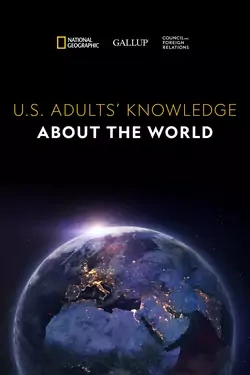
U.S. Adults’ Knowledge About the World

A new survey commissioned from Gallup by the Council on Foreign Relations and the National Geographic Society explores American adults’ knowledge about geography and world affairs.
- Report
A new survey commissioned from Gallup by the Council on Foreign Relations (CFR) and the National Geographic Society (NGS) finds that adult Americans exhibit gaps in their knowledge about geography and world affairs. While the report shows that U.S. adults have limited knowledge about these topics, seven in ten respondents consider international issues to be relevant to their daily lives and express a desire to promote education in these areas.
More than two thousand U.S. adults participated in the survey, which tested knowledge about geography, foreign policy, and world demographics. Respondents were asked about their interest in those topics and how much they learned about each in school. The survey also inquired about policy preferences toward several international issues, including the role of the United States in the world, climate change, trade, and government spending.
More on:
Overall, respondents answered just over half of the knowledge questions correctly, and only 6 percent got at least 80 percent of the questions right.
Learn More About the World
Quiz: How Much Do You Know About the World?
Read the full report and test your knowledge about the world in the quiz below, which highlights a sample of questions from the survey.
Brush Up on the Issues
Based on survey results, Americans were less knowledgeable about trade and foreign aid. Increase your knowledge by reading more about these issues:
- The U.S. Trade Deficit: How Much Does It Matter?
- NAFTA’s Economic Impact
- How Does the U.S. Spend Its Foreign Aid?
- The Truth About Tariffs
More on:
The survey also revealed Americans felt climate change and immigration were major issues facing the United States. Learn more about these topics:
 Online Store
Online Store
